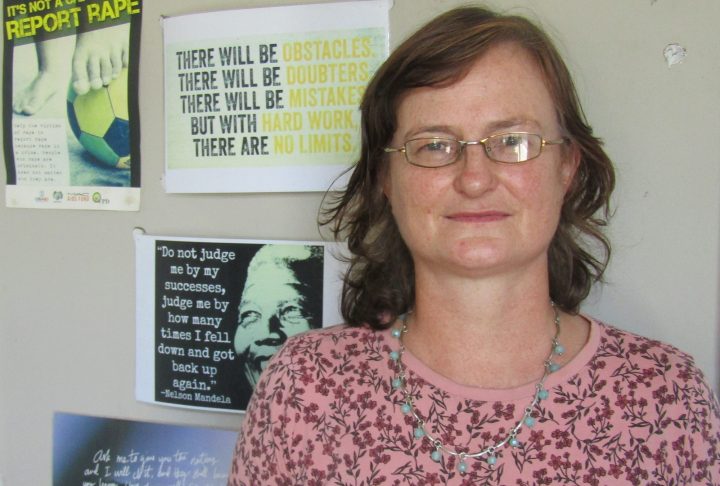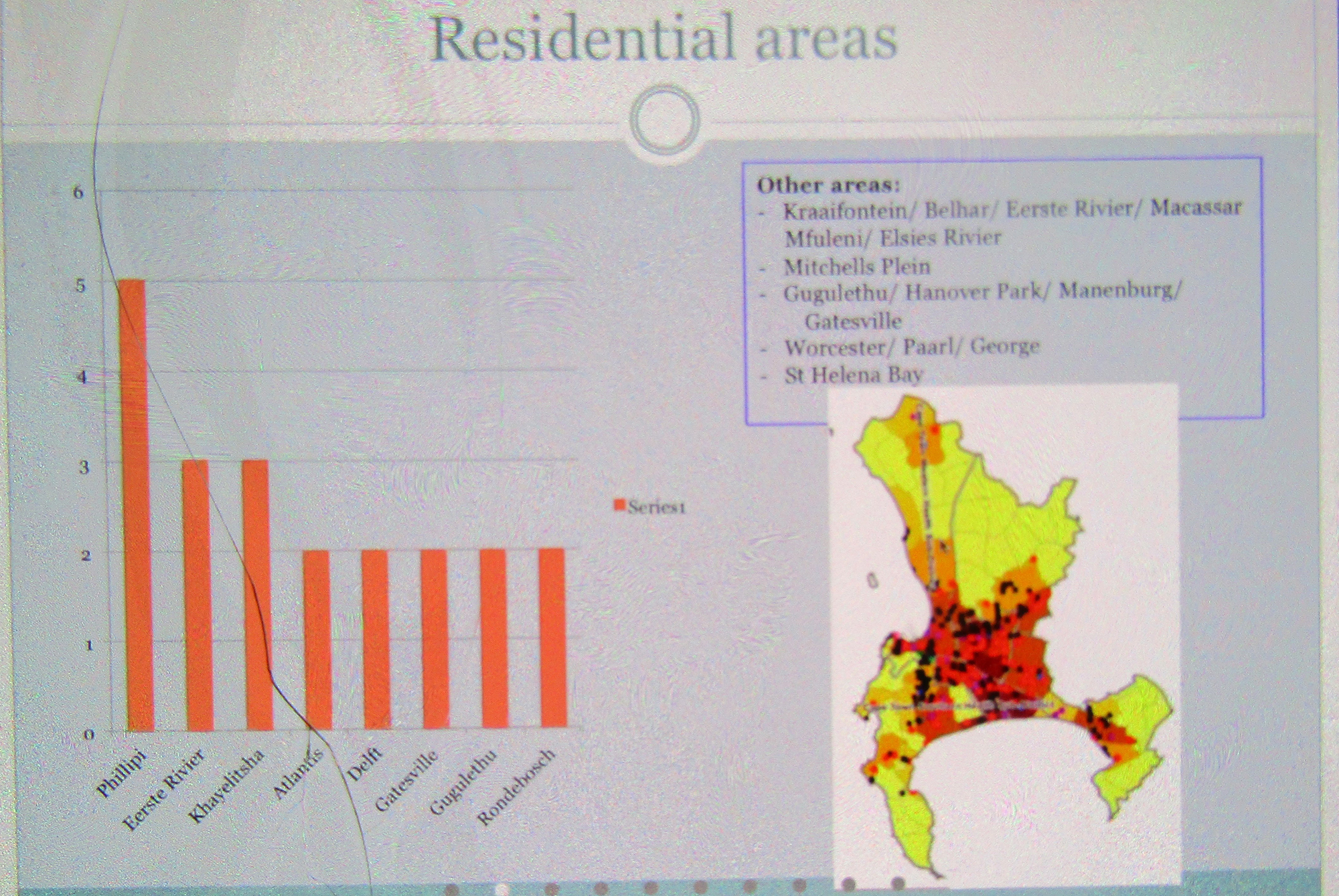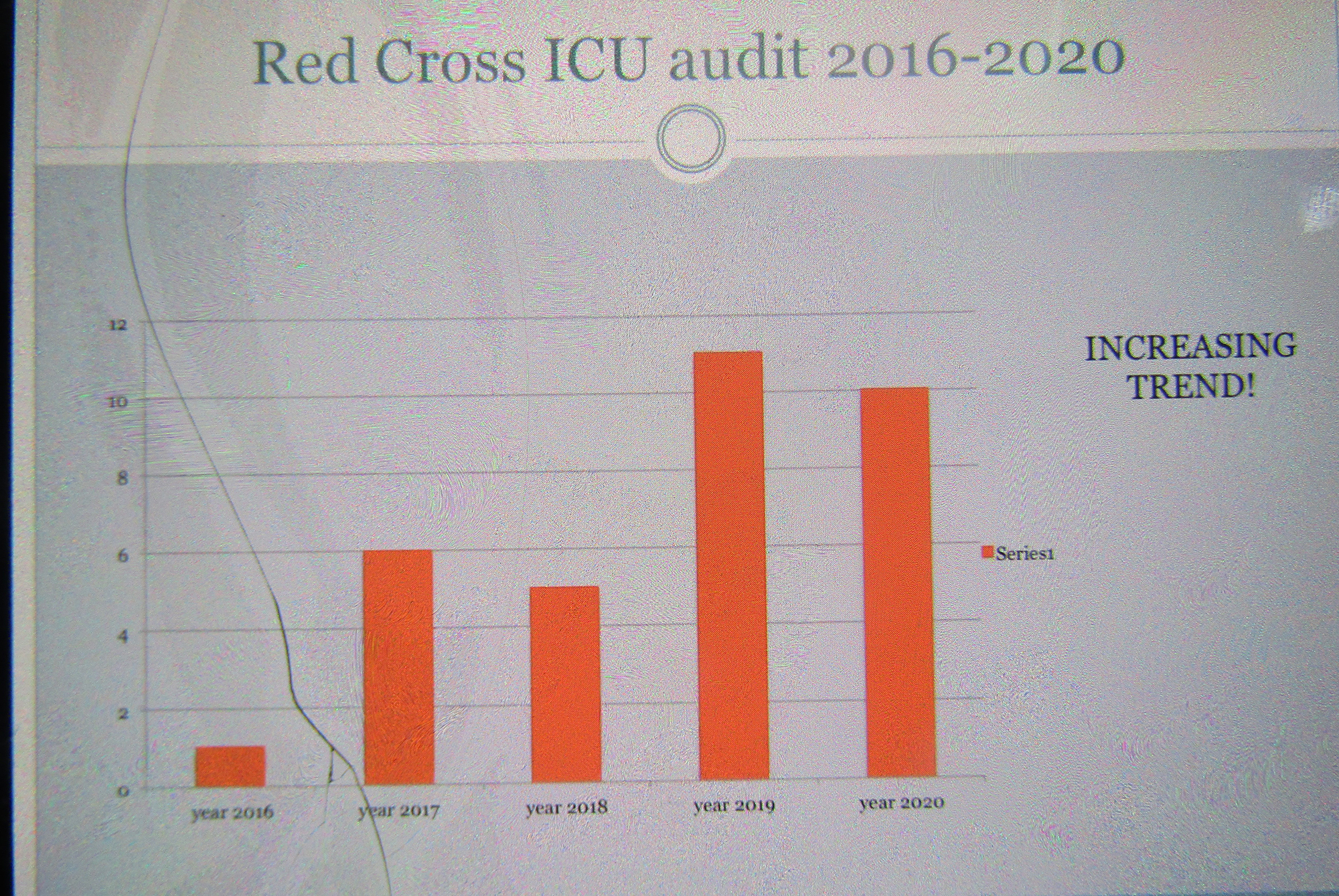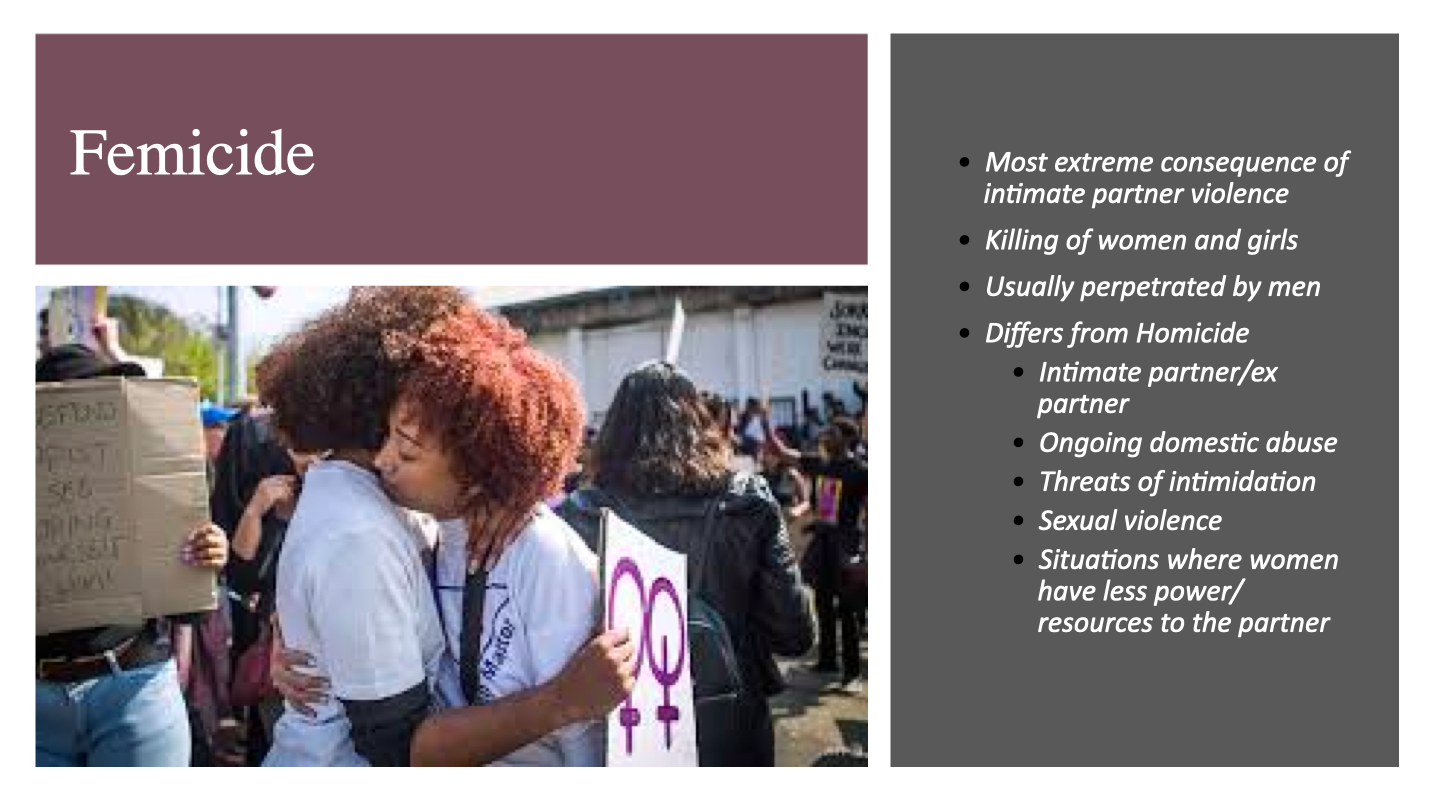MAVERICK CITIZEN ANALYSIS
Trapped in a lockdown within a lockdown: The trauma of gang violence

Drugs, gender-based violence, domestic violence, child murders, school violence and rape are all intertwined with gangsterism. In gang-infested communities in the Western Cape, residents experience constant trauma – they have been in lockdown for years.
“There has been so much talk about lockdown as a result of Covid-19. But we forget people living in the most dangerous communities in the Western Cape have been in lockdown for years,” says Marguerite Holtzhausen, executive director at the Trauma Centre for Survivors of Violence and Torture.
Commenting on the prevalence of trauma in gang-infested communities, she said that it negatively affected people’s ability to function on a daily basis, to do things like sleep, work and going to school.
In Red River Walk, a road in Manenberg separating rival gangs, it is not uncommon for residents to go to sleep and wake up to the sound of gunshots.
On March 29, six people were killed in separate shootings in Mfuleni.
Three children in the Western Cape were shot recently.
Riaz Cloete (8) was shot in the head in Manenberg on 3 April while playing in a street, Chloe van der Westhuizen (4) was shot in the head in Hanover Park on March 25, and Declyn Wippenaar (13), also from Hanover Park, was shot in the spine while playing in a soccer tournament in Philippi on 5 April.
These communities were in a lockdown imposed by gangsterism.
“Whenever gang fights broke out and shots fired for days and sporadically, petrified residents closed their doors and remained inside while skirmishes continued unabated outside. This is one way of coping with gang violence and suppressing the trauma,” Holtzhausen said.
That’s how our youngsters, she said, become desensitised to other people’s feelings. The first time youngsters see a person getting murdered it is a shocking experience but the next time it won’t be so bad.
“The trauma is overwhelming, but you start guarding yourself and you get used to this trauma, which shifts you mentally into a survival mode.
“The greatest fear for children is whether they will make it in their environment to become an adult or make a success of their life. With so many people being shot and killed on a regular basis it has become a daunting task for children to walk to school.
“Our case studies revealed that families living in different gang territories can’t even visit another because they cannot enter rival gangs’ turf,” she added.
Holtzhausen has found that people experiencing trauma become withdrawn, don’t want to interact and become numb.
The Trauma Centre for Survivors of Violence and Torture counsels victims of gender-based violence, domestic violence and other violent crimes in areas including Delft, Kraaifontein and Mitchells Plain.
“In Delft, our target for the month is 30 cases. But for the past month, it has been 53. We have sessions every Tuesday and my colleague says if she skips one week the following week it looks like a Sassa queue.
“That is for people who experience trauma and need counselling, and most of these cases are GBV. Even when people come to us with a housing problem or school placing of a child, we find underlining that there is abuse in that relationship. Of the extreme cases are quite a lot of women being gang-raped, either in their home or streets,” said Holtzhausen.
In one of the cases in Mitchells Plain, a matric learner said during a session with Holtzhausen that she actually didn’t grow up in Mitchells Plain. “She lived there but she didn’t interact with anybody there because she went to school in the morning and after school she was locked up at home.
“This learner had no way of interacting with other people. Such learners can develop withdrawal symptoms. This is a coping mechanism where a parent says: How can I raise my child with all the negativity and violence outside? Parents create that safe bubble for their kids.”
Doctor Nicole Morgan, a paediatric registrar at Cape Town’s Red Cross Children’s Hospital, painted a grim picture during a virtual presentation addressing violence on children.
In her opening remarks, Morgan said she decided to dig deeper into gang violence in Cape Town after seeing a spike in cases between 2016 until 2020.

Areas where children are shot are widespread in gang-ravaged regions in the province.
“An ICU audit we have done was a complete eye-opener. The first graph shows the total number of gunshot injury-related admissions to ICU over the past few years, from 2016 to 2020. Quite an alarming increase over the years. Out of a total of 33 cases, we saw one gunshot admission in 2016, about five or six in 2017/2018 per year, and in 2019/2020 there were 11 admissions. Definitely quite an alarmingly increasing trend.”
Head, neck and facial injuries were the most common injuries, followed by abdominal injuries.

Red Cross Hospital has seen an increase in the number of children with gunshot wounds admitted to the intensive care unit.
Areas where children were wounded were widespread, with most cases occurring in Philippi, then Eerste River. Khayelitsha, Atlantis and Delft.
“Most cases of the gunshot wounds happened when the kids were caught in the crossfire and most of the crossfires are gang-related while they were playing, coming home from school and a couple of people asleep in their beds and hit by a stray bullet.
“The next most common is a parent who is a target; somebody comes to take out the parent and the child is in the way. One child was actually a specific target – that child was a witness to a crime – and one child who was 11 years old was a target of a shooting and was known to be using substances.
“Looking at these, what was interesting for me was not only had these children had significant injuries, but many of them also lost their parents and were going back into the community with the fear of being retargeted as a witness to a crime.”
A video clip of an 11-year-old boy from a Cape Flats street gang shows him openly talking about being part of a gang consisting mostly of teenagers, and detailing how he was shot twice in the leg with rubber bullets and stabbed in the chest.
Doctor Yolanda Nkanuka, from UCT’s Department of Medicine and a survivor of GBV, said GBV was a widespread problem that affects almost every aspect of life.
“It is systemically and deeply entrenched in institutions, in cultures, as well as tradition in SA and the world over. SA is also widely known for being a scourge of GBV and femicides, to the extent that it is notorious for being one of the unsafe places in the world for being a woman,” she said.
“In terms of sexual and reproductive health, 16% of women who experience GBV are likely to have a low-birth-weight baby. We are 1.5 times likely to acquire HIV and other sexually transmitted infections. Dead and injury occur to 42% of women who had experienced physical and sexual violence at the hands of their partner,” she explained.

Femicide is one of the extreme consequences of intimate partner violence.
Femicide, Nkanuka said, is the most extreme consequence of intimate partner violence and is usually perpetrated by men.
In November 2020 the government acknowledged that violence against women and femicide rates in South Africa are a scourge. Women live in fear everywhere: in their homes, in streets, at school, exercising alone or even taking public transport, said Nkanuka.
An effective way to combat GBV was through the empowerment of women and girls, encouraging them to find their voice.
Gangsterism permeates society at many levels, and its impact is felt at school level.
“Community violence or gang violence does affect school attendance. Many children in South Africa have witnessed community violence in some shape or form, either by hearing gunshots or seeing someone attacked,” said Rahima Essop, head of communications and advocacy for the Zero Dropout Campaign.
“Some learners end up missing school days because of the trauma of crime, gangsterism or protest action. If the journey to school is long, difficult or unsafe, this can also keep learners from school.”
The Zero Dropout Campaign works with four NPO implementing partners in three provinces that implement dropout prevention strategies. These NPOs work in neighbourhoods affected by community violence and high levels of drug and alcohol abuse.
Research by the Khula Development Group in several primary schools in Paarl East showed that gang violence, drug abuse and alcoholism affected many households.
In uMgungundlovu, Kwazulu-Natal, she said, a partner organisation operates in several secondary schools in the district, most of which are located in deep rural areas where socioeconomic pressure leads to early school-leaving, along with teenage pregnancy and increasing drug abuse among young people.
“Levels of violence and physical and sexual abuse are also high in many of these contexts, leading to disengagement and dropping out.”
Essop said that research showed that before Covid-19, about 33% of young women in SA who dropped out of school did so because of pregnancy.
In class, learners’ ability to concentrate was often compromised because of the trauma of gangsterism and GBV in their communities.
To tackle these issues effectively, Essop recommended that places of safety and care be established for those who have survived, or feel at risk of, domestic and gender-based violence and those struggling with their mental health.
“Learners at risk of dropping out should also be identified and referred to psychosocial support services in their schools and neighbourhoods. We also need to bolster public safety and drug prevention programmes that will safeguard learners during their schooling journey.”
Western Cape Education Department (WCED) spokesperson Bronagh Hammond said the department doesn’t have specific statistics on how many learners belong to a gang, but there are learners that belong to different gangs. This, she said, can affect the school community.
“This often is the case when there is a conflict between two gangs, with gang members attending the same school. If we see an increase in gang violence within a community, this sometimes leads to conflict within schools, as the violence or conflict between the gang itself on a broader scale is then played out between members within a school,” she said.
Despite these hurdles, Hammond added, the WCED is committed to ensuring quality education for every learner, in every classroom, in every school across the Western Cape.
“Addressing these issues goes beyond our mandate and control. We are therefore also reliant on other governmental departments and law enforcement agencies such as the South African Police Service, the Department of Justice and the City of Cape Town law enforcement.” DM/MC



















 Become an Insider
Become an Insider
Thanks for the article,the marginalized group is getting attention,Been saying this for years.Root cause of all this pain is gangsters.Root out gangsterism to such an extent,that their is growth and a normalization of suburban life.Its has been neglected for decades.A multiprong approach,please!!!
A good start to remedying this would be to get the SAPS and politicians out of crime, gun running and profiting from drug deals. Very little progress will be made without tackling that as a priority.